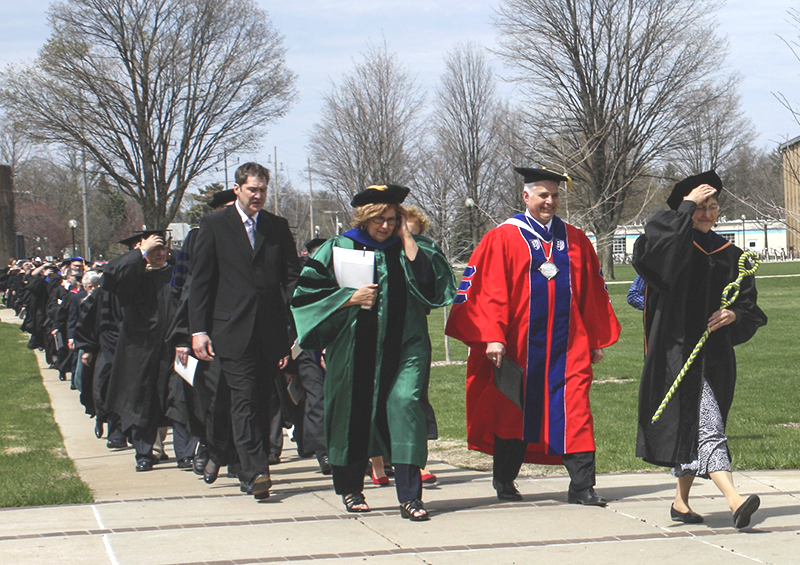New students at Goshen quickly learn that professors prefer a variety of titles. Some ask to be called “doctor” and others “professor,” yet most prefer for students to use their first names. Do the barrier-dissolving nature of Christ and the paradoxical ideal of “engaged with the world yet separate from the world” give us guidance on this topic?
In a letter to Thomas Muntzer, Conrad Grebel and other early Anabaptists addressed Muntzer, a clergy member, as “brother.” Citing Christ as the one Master and all others as brothers and sisters, the early Anabaptists echo what Galatians 3:26 and 3:28 say: “For in Christ Jesus you are all children of God through faith… There is no longer Jew or Greek, there is no longer slave or free, there is no longer male and female; for all of you are one in Christ Jesus.”Goshen is different from most places. The Christian-Mennonite culture permeates all aspects of this community, including professor-student relationships.
“At Goshen you get more than a professor. You get a mentor, a friend, and at times a pastor,” Joe Liechty, Peace, Justice and Conflict Studies professor, said.
After three years here, I realize how true this is. My professors continually inspire, challenge and nurture me, and my experience is not unique. Most students have stories of meals at professors’ houses, babysitting their children or talking through challenging life decisions. Professors also gain something from their relationships
with students.
“I bring what I’ve learned to share, and I learn from what students bring,” Carolyn Schrock-Shenk, a PJCS professor, said. “We are in the teaching-learning process together.”
Students and professors are close at Goshen, but does this closeness create casualness that is unprofessional or disrespectful? Some professors say yes, citing too-informal emails and casual greetings that don’t respect the professor-student relationship.
In the real world, sending an email to your boss with the subject line: “Oh crap!” and with the first line: “Hey [first name], sry I was late, overslept, was up late singin’ hymns! #hymnclubmeetstoolate” wouldn’t fly.
From the professor’s side, Schrock-Shenk described the use of titles as a power check. When called “professor,” she is reminded of the power that she holds over the teaching-learning process.
“I don’t want people to let me forget that I have a position of power,” Schrock-Shenk said. “If we forget that power, then we might abuse it.”
The early Anabaptists were right to question titles. If a title is used to lift ourselves up above or demean others, we should reject it. To be Christian is to be different from the world. Our world sometimes uses titles to differentiate and to establish unhealthy hierarchy, but Christ’s standard calls us to respect all people as children of God, regardless of status, race, ethnicity, sexual orientation, ability, education or gender. The reverence due to each person as a child of God is the highest form of respect.
It is key to engage this issue through a faith lens that raises constructive questions about power, injustice and equality.



